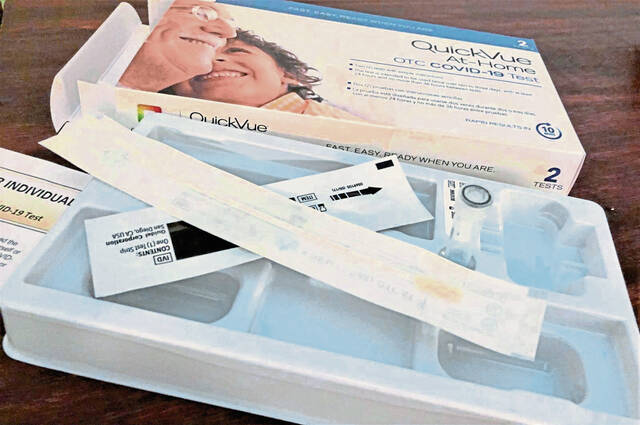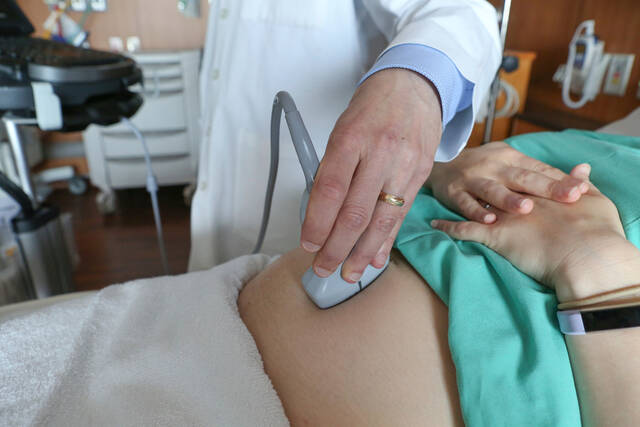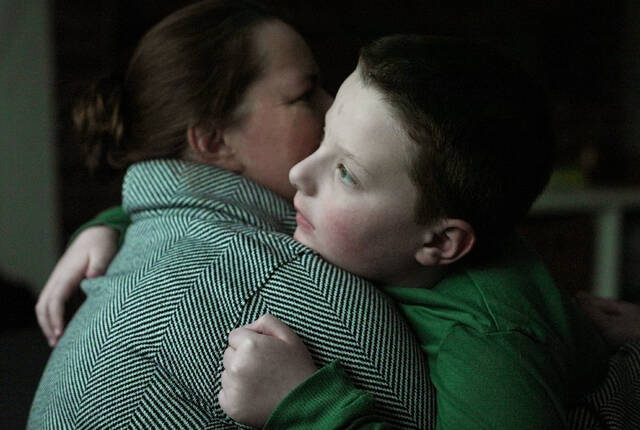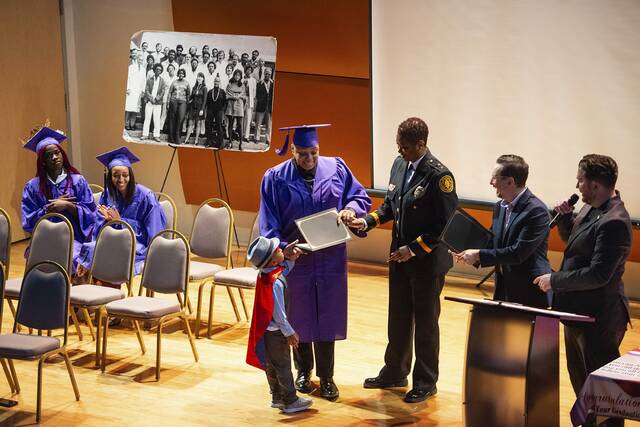Eleanor Nicholson of Apollo says she isn’t that concerned about covid.
“Maybe (it’s) because I’ve never really had it. Nobody in my family has,” she said.
Her opinion hasn’t changed with the reports that the Centers for Disease Control and Prevention could drop the five-day waiting period for people who test positive for covid, according to the Washington Post.
The rule change would alter the guidance to be symptom-based, meaning people will be cleared to return to work or school if they have been fever-free for 24 hours without medication and if their symptoms are mild and improving.
Some experts see the change as a step toward treating covid more like other illnesses. Pittsburgh-based Dr. Amesh Adalja, senior scholar at the Johns Hopkins Center for Health Security, said that the updated CDC guidance reflects a “harm reduction approach to a virus that is endemic and for which there are more tools than any other respiratory virus.
“Increasingly, it has been clear that covid guidance would need to be integrated with other respiratory viruses and not singled out in perpetuity,” Adalja said.
Dr. Tom Walsh, an infectious disease specialist at Allegheny Health Network, noted that the change reflects the reality “that many Americans are not testing even with mild symptoms, nor isolating for 5 days after symptom onset with mild disease.”
He pointed out that the science regarding covid transmission has not changed — infected people are contagious for at least a few days.
The rule change, he said, would be similar to the protocols for seasonal influenza and minimize transmission when an infected person is the most contagious.
As for Nicholson, she said she tries not to get other people sick if she’s ill.
“When I get sick, I just stay home and try not to spread it,” she said.
Those opposed
Not everyone is happy about the proposed rule switch.
Kylie Zourelias, of Fawn, has had covid twice, the second time worse than the first. She opposes the change because she lives with her 89-year-old grandmother.
“Maybe it would be different if I didn’t live with her,” she said. “I’m more cautious with that stuff.”
When she had covid, Zourelia said she avoided her grandmother and stayed in her room.
“I’ve known people with no symptoms,” she said. “Maybe it would be different if I didn’t live with an elderly person.”
Mike Milford, of Shaler, said he had to stay out of work for 10 days when he had his first bout with covid in early January.
“I would probably stick with the five days,” he said. “If you’re positive, there’s still a chance you’re out there infecting other people.”
Milford said having covid was the sickest he’s been in years.
“I don’t know who’s testing themselves without symptoms,” he said.
Kelly Worley of Greensburg has mixed emotions about the change. She suggested lowering the wait to a three-day minimum.
She contracted covid for the first time around Halloween last year, she said, and didn’t know she had it until she had been at work.
Worley is concerned that some businesses may make employees return to work quickly after getting clear of the fever stage if the rule change goes into place.
“I don’t think they should treat it totally like the flu,” she said, adding that she thinks the recommendation to wear a mask after you are sick with covid should stay. According to the Washington Post report, it is unclear if the CDC will update its guidance on masking, which is recommended for 10 days after testing positive for covid.
Petra Foster, a Greensburg mother, said she moved her five kids to attend cyber school after their in-person school had too many covid scares.
She wishes the guidance for staying home had never been reduced from 10 days to five days in 2021, and she is not in support of reducing it further.
“Even though you don’t show symptoms, you can still give it to people,” she said. “They should have it be longer.”
Those in support
While there are some detractors, others such as Ryan Bernardi, of Butler, think the proposed change is a good idea.
Bernardi said he doesn’t know if he’s ever had covid — he’s never tested himself.
Symptoms would be a better measure of sickness than a test, he said.
“Symptoms do last longer than five days,” he said.
Bill Werts Sr. of Greensburg said he recommends letting individuals make their own choices.
Werts, 77, said he keeps up to date with covid vaccines and boosters. He said he is concerned about covid misinformation, the fact that guidance about the disease has changed over time, and the reliability of tests.
“I’ve tested for covid at various times, and I’ve never had it. I certainly don’t want to get it and find out I’m on my last legs,” he said. “(But) it’s there, and we’re going to live with it.”








